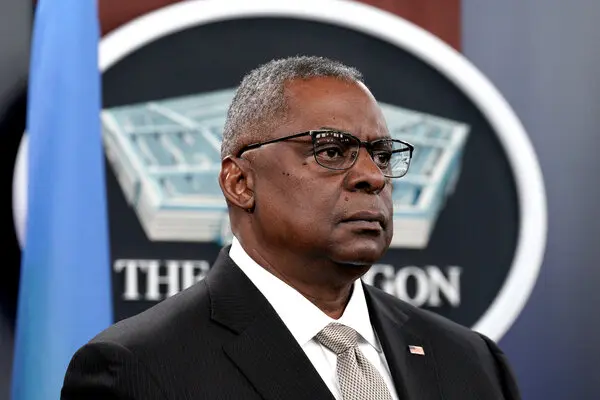In the aftermath of a devastating drone attack on a small American outpost in Jordan, U.S. Defense Secretary Lloyd Austin has expressed a mix of anger and sorrow over the loss of three U.S. Army soldiers. The attack, targeting a site in northeastern Jordan near the Syrian border, occurred as American forces were actively engaged in the fight against the Islamic State of Iraq and Syria (ISIS).
In a strongly worded statement released by the Department of Defense, Secretary Austin conveyed his outrage, stating, “I am outraged and deeply saddened by the deaths of three of our U.S. service members and the wounding of other American troops in an attack last night against U.S. and Coalition forces.” The troops had been deployed to the area with the mission of working towards the lasting defeat of ISIS.
Secretary Austin, alongside President Joe Biden, unequivocally declared that the United States will not tolerate attacks on American forces. Austin pledged, “We will take all necessary actions to defend the United States, our troops, and our interests.” This firm stance reflects the gravity of the situation and the determination of the U.S. government to safeguard its military personnel.
Attributing the attacks to Iran-backed militias, Secretary Austin asserted that the U.S. would respond at a time and place of its choosing. The continuous assaults on U.S. forces by these militias have been a cause for growing concern, and the U.S. government appears resolute in its commitment to holding those responsible accountable.
Expressing his condolences, Secretary Austin stated, “These brave Americans and their families are in my prayers, and the entire Department of Defense mourns their loss.” The loss of lives underscores the inherent risks that U.S. service members face while undertaking missions in volatile regions, and it highlights the sacrifices made by these individuals and their families.
The drone attack in Jordan represents a significant escalation, marking the first instance of U.S. troops losing their lives to enemy gunfire in the Middle East since the beginning of the Gaza war. The assault specifically targeted Tower 22, a location close to the Syrian border, further exacerbating an already tense situation in the region.
According to U.S. authorities cited by CNN, the drone responsible for the attack is believed to have been launched by militants supported by Iran and appeared to originate from Syria. The use of sophisticated drone technology in the attack underscores the evolving nature of threats faced by U.S. forces, adding a layer of complexity to their mission.
U.S. Central Command officially confirmed the casualties, stating that a one-way drone attack on the outpost resulted in the deaths of three service members and injuries to 25 others. President Joe Biden, in response to the attack, pledged accountability for the incident. He identified the perpetrators as extremist groups supported by Iran, operating in Syria and Iraq, emphasizing that the responsible parties would face consequences determined by the United States.
“These service members embodied the very best of our nation: unwavering in their bravery, unflinching in their duty, unbending in their commitment to our country—risking their own safety for the safety of their fellow Americans and our allies and partners with whom we stand in the fight against terrorism,” remarked President Biden, paying tribute to the fallen soldiers.
Despite a continuous onslaught involving drones, rockets, and missiles, the majority of the reported attacks on U.S. and coalition forces in Iraq and Syria had been deemed unsuccessful as of the previous Friday. However, the specific reasons for the failure of air defenses to intercept the drone in this recent incident remain unclear, raising questions about the effectiveness of existing defense mechanisms.
The assault on Tower 22 is the first documented attack since the series of attacks on U.S. and coalition forces commenced on October 17. U.S. forces stationed at the outpost are engaged in an advise-and-assist mission with Jordan, emphasizing the collaborative nature of efforts to maintain stability in the region. Despite the increasing frequency of these attacks, officials have reiterated their reluctance to see heightened tensions escalate into a regional war. The delicate balance of power in the Middle East and the potential for a broader conflict underscore the complex challenges facing the Biden administration in managing the evolving situation.













